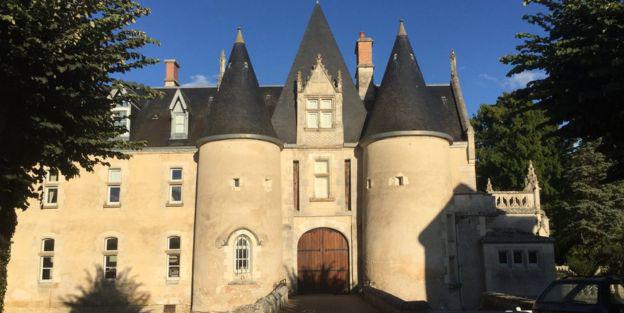
On August 4, 1789, known as the "magical night" in French history, the aristocratic members of the National Assembly proposed the abolition of the feudal privileges of the nobility. The BBC published an article saying that although French officials no longer recognize the nobility, this special status continues to this day and continues to prosper in the 21st century.
Nancy Mitford, a perennial British writer living in Paris, said in one of her books that the French aristocracy was more sensitive to their status than the British aristocracy. If you invite a French duke to an embassy, you have to know in advance whether they were dukes of the Kingdom of France, dukes of the Restoration, Dukes of the Napoleonic era, or dukes of the Papal States. The dukes knew how to arrange the seats at the table, and if the ambassador got it wrong, they would be offended.
Mitford's book was written in the 1950s, and the actions of these forces are like a distant memory. But to this day, the French aristocracy still exists. In fact, in terms of numbers, there are more aristocrats in France today than before the Revolution.
Jacques de Crussel, Duke of Duc d'Uzès, said: "There are about 4,000 families that can claim to be aristocrats today, compared with 12,000 in the era of the Revolution. But today's families are larger, so in general there are 5,000 to 10,000 nobles in France, about the same as in the 1780s. ”
He continues: "The point is that although many aristocrats disappeared during the Revolution, the five kings or monarchs who ruled France in the 19th century all established their own nobility, so the number of nobles accumulated. ”
The Duke of Hudsès was president of the Association for Mutual Help of the French Nobility, an institution with little fame. It is said that the "Mutual Aid Society" was founded in the 1930s, when two French aristocrats discovered that the waiters who helped them carry their luggage at the Paris railway station were also aristocrats. Therefore, the two decided to create and manage a foundation to help the fallen nobles, which was also one of the duties of the "Mutual Aid Society".
In addition, the Mutual Aid Association is also responsible for scientific research and certification. Every year, they receive more than 100 applications for "aristocratic status," most of which are true, but others misreported and misrepresented. The most common misconception is that many people think that as long as there is a "de" in the name, they are aristocrats.
So, where are the hundreds of thousands of nobles in France? How do they see aristocratic status? Are they distinctly different from other Frenchmen? The BBC noted that some aristocratic families still retained great wealth and great influence. They live in luxury homes in Paris, funding industrial and financial development, such as Jean-Dominique Senard, president of the Michelin Group.
There are also many people who live far from the capital, living in old mansions or castles, and maintaining a house is a huge burden in itself, such as the de Vogüé family in the Berry region of central France. The de Vogo nobility originated in the Ardèche region in the 12th century, and its branches migrated to Château de Pezeau near Sancerre before the Revolution. Today, Albert, who is in his 80s? Albert de Vogüé lives here alone and takes care of the land.
"I don't feel particularly honored or embarrassed because of my aristocratic origins, but I feel guilty of passing on my family's legacy in Berry," he said. "His children are proud of their ancestors, and as low-key Catholics, they say the values of kindness and inclusion are very important to them.
However, they felt that they were far removed from the social life in Paris, and Hugues, Alber's son, said: "I went to the local school when I was a child and said that my father was a farmer and he was indeed a farmer. It wasn't until many years later that I was able to admit that I lived in the castle. "The Alber family has a deep affection for the local people, and Alber has been the village chief for fifteen years.
For two hundred years, the French aristocracy had to play a strange social game— many nobles were killed during the revolution that established the French Republic. Although the French aristocracy did not exist legally, the concept of the "landlord class" was still contrary to the spirit of French thought, so most of the descendants of the nobility had to be cautious in their words and deeds.
(Editor's note: French society attaches great importance to status, the pursuit of occupation and life "status", the state apparatus to give and protect the people's "status". Previously, a commentary in the British "Guardian" on the "Standing in the Night" campaign pointed out that France has always been a hierarchical society, and successive reforms have not changed this. It's just that the people at the top of the power tower have changed from "these people" to "those people." )
(Editor: Hibiscus)